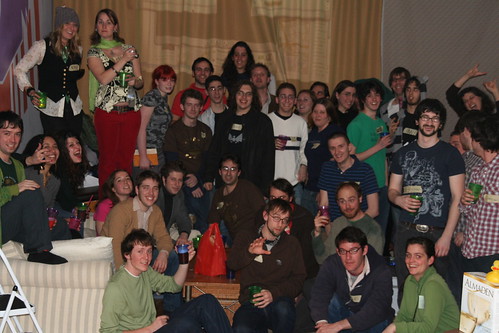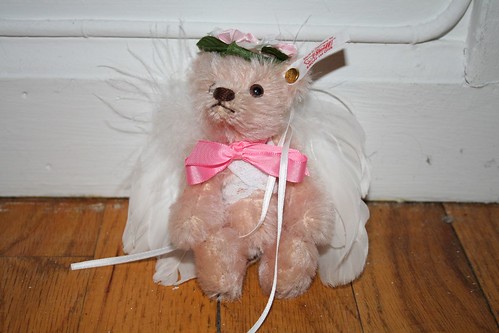Transmedia Properties
Paul Levitz, Michael Lebowitz, Alex Chisholm
Moderator: Henry Jenkins
What are the resistance points to transmedia?
Alex: transmedia is the intersection of TV and UGC. It is the cost…the economics of creating things across the media is difficult. It is very expensive given unions/guilds need to have a piece of the pie. We don’t now how to monetise all of it. It is still experimental. Shows are begging to be transmedia but the budgets are not there to make it work.
Michael: sometime the money is in the marketing. Other times we struggle to say that this effective marketing. The old form, single call to action, is dead. Especially in the digital, filmmakers have total control, so why would I let people play with it. Fear on all sides, marketing, filmmakers. So what is the compelling argument to make an extension. We came into picture at end of first season, they had a huge hit. They gave big spaceship a challenge to provide summer entertainment and a way to get fans into the tv if joined later. There are a lot of different roles to be served and will inevitably disappoint someone.
Paul: one of the other problems is that creative worlds do not spring like Athena. Most are not done like Tolkien did, from the language etc. nothing abut heroes existed before about a year today. We not only don’t have the economic model we also do not have the creative model. The showrunner day job is producing a tv programme and now we have a process where it is done all over the place and needs to come together, their job has expanded. It does not make sense for them to turn everything over to other people, they need to have control, the world is not yet all built. We cannot create everything as slowly as LotR, we need to create a generation of people who have grown up in a world when a world is built up with people build up. The current creation process means people want more and more control – that is success in that world. Being the guy who creates is success.
Alex: the exchange between the creators in different channels there is the role of the network executive. Heroes at ComicCon…had an implication that part of the problem was to do with Muslim extremists, but this is not in the broadcast version.
Michael: our company is set up across multiple disciplines but they have to collaborate to do the job and the structure makes it happens. Everyone get a voice in our creative meetings.
Paul: this will get solved in a new synthesis. As the opportunity grows, you may be being bought in early. The writing team will start to bring in people earlier..as it becomes more important, it comes in earlier.
Michael: they are being approached during production and earlier to be involved rather than post. Looking to see the production companies come to us and help them build it out as they are being challenged with coming up with a world.
Henry: how do you balance the different areas- those who just to telly and those who are go further into the world?
Michael: built out the davinci code campaign online. Had to struggle the 2 audiences. A lot of thought to navigation and the experience. Had the ‘normal’ stuff and lots of rabbit holes for people to explore who were interested in going further. This only half answers question cos when you get to Lost, we started out carefully, we started out with the oceanic air site and added easter eggs arte different depths to see what people wanted to do. People found them instantly and kept digging. Thought we would work closer with the production tem but were left on their own and stuff did not necessarily go back. But the boards were active…they discovered the Big Spaceships pages (they hosted the site) and they entered the story as a part of it, inadvertently.
Paul: there are different tools to make it multilayer. You want to create a story that anyone can come in at any point and say this is interesting. You have flexibility to allow people to dip in, eg tv, itunes, dvd. This makes it easier to do complex shows as people can start at the beginning.
Alex: each channel has to stand by itself; be able to enter one and understand it. If you move across channels they need to work together, make it a richer experience. I went to ComicCon and was thrilled to get the limited edition comic. But was bummed as the first section was a rewrite of the pilot stuff. But the back had some new stuff that was cool. The site now builds on, with the weekly comics adding little things.
Q: As complexity is OK now, soaps have always been complex, since started in late 40’s. it is amazing to me that the historical context is not connected to Hill Street blues. There is a lot of case history that has gotten lost in the culture, we seem to have come full circle. Night-time soaps (anything that starts with previously on) and daytime soaps are using traction. Continually ironic that the medium that started complexity still does not get recognised when you look back a the history.
Paul: certainly acknowledge soaps in areas. But we are now breaking out of the ghetto…Roots and Hill street broke out of the ghetto and bought it to the larger audience. A comic book was an enormous pejorative, now you can get good comic book things.
Q: we are discussing three things as transmedia. One is adaptation from one style to another. One is adventures in different media with no attempt to keep them consistent., And there is across different platforms where trying to be consistent. Where do you these affecting each other and where do you see yourselves.
Alex: working on a project with Sarah Smith, Chasing Shakespeares. Read book and thought it was complex…read it and thought it was a play. Asked Sarah to make it a play and was agreed. And as the play was developed, characters were killed, lines moved around. I got freaked out, circumstances changed. There is a bit of negotiation as move across media. Henry does a work shop where do Interactive story telling, across channels, looking at how to move. Looks at keying in on the key attributes. Bond, LotR, all great examples.
Paul: it’s all of the above. It has to capture the sincere essence of the work. We know that when we see it as creatives and as consumers. The one person which is least likely to stand outside is the original creator. The original is often the person who is least happy with the transmedia stuff. It’s a hard balance. When you create something, you have a vision and have innate compass of what rightness is. Some creators do not have that problem. Schulz wanted to do everything himself, wanted strip to die with him, who else could be Charlie Brown. Jim Davis, who created Garfield, turned out a factory of Garfield creators as welcomed different points of view. Both can be art potentially, but there is no answer to the question that spans everything, it depends.
Q: Have you seen cross applications that revitalise a property. Do you get feedback to bring new life or new interest. How do you see the evolution of fan culture?
Michael: the fan participation has been there for a long time. We’ve all heard of Star Trek slash. There’s a lot out there and there is now more potential for things to be centralised and commercialised. Double edged sword – it uses people but they are happy to create. Incredibly existed, not only just on a technology level, with browser expanding with widgets etc, the browser is the middle man, like the CD. The things that people do on their computers getting easier to distribute, to collaborate etc, inside of an open system, there are tools that are created for the fans of the show to create things.
Paul: look at the long arcs of the properties. The tv show of batman in the 60’s bought it to another level, burned it out real show during the time. It’s very hard to pinpoint the fathers of success of the next level in the 80’s, but that was a compilation of the different success. Before Tim burtons film we had the tshirts driving a phenomenon. Al ends of the circle can feed it. When it is really working you do not know who did it.
Q: problems with holes in plots?
Paul: the problem is not the scale of the audience. The audience is very forgiving of the sincere mistakes. It is not very forgiving of the ones who don’t get it, those who don’t read the stuff. This leaks back, saying you don’t care enough to respect us. Star Trek in 70s had this problem as the novelisations did not tie in. The obvious sloppiness does the damage. Are you grokking what the group gets, if you do then a sincere member of the group and will will ignore the mistakes.
Alex: it’s the becoming story now.…we can reset the clock. Look at Wicked
Paul: Wicked is not quite that, it is the under-reveal. Ie it fits with what you know but gives you more. But the clock turning back resets the facts as well.
Henry: how do AU worlds work? Is this a different strategy and why do we not see it outside of comics
Paul: you do see it, and more as the geek logic permeates the culture. You see it in the alternate history stories. Our cultural ethos is leaking out. It says, you know this story so what happens if a piece of the story flips. If it feels right and is a living homage that departs and legitimately speculates then it is fine. But difficult to tell where the line is. Difficult to tell people; try to explain in business logic with studios. Ultimately not yet found a great objective language for it. You can forgive no Tom Bombadil but can’t put into a theory of what you can do or not.
Q: (from fictionalley.org, a harry potter site). Comic book world is easy to change the worlds, when you change the artist etc you get a different world and you can expect it. When you are talking about visual interpretations in different media…how do you deal with the people who are the visual purists..and how do you respond to the interactivity of the fans, with the shows are self-reflective, knowing their fans get on the boards and deal with those fans and those who do not want any changes…
Paul: comics are in a good position. The more the reader has to fill in the blanks the more flexible they are likely to be in the versions that follow. It is still a challenge..when singer comes in and changes the colour of the costume as it will film better. You sit back and go OK, I know he connects, and know the properties. Is he right? You make a gut assumption in your own head whether you think you will get lynched for or whether it will work. When you show it and they applaud, then you go ‘whoooo’. On Tim Burton, they were afraid to call us about Michael Keaton, the chairman of Warner brothers called. But he was right. Comics start from an easier place. Prose has it easier. As long as it is consistent with the authors world.
Alex: 2 exmaples in theatre in New york. The number of fans that comment on Wicked daily is huge, who is the definitive glinda etc. Second is about IP, Urinetown originated in fringe a few years ago. It is a pastiche piece, when staging in off broadway. In regional theatres, cast members are directing it, it is a imprint of what it looked like in new york. The rights assignments do not exist…the original creators are not being compensated for it. There is no recognition for this kind of thing in the rights framework. It is not just digital media that propagates, we get Xerox musicals.
Q: are we seeing a shift towards hard transmediation instead of soft transmediation. Things designed from the start. The entire property is one cohesive entity. What do you see as possible distribution methods?
Michael: loves the idea of subscription content, have the content delivered to me through RSS etc. It depends can the broadcasters let go of their own brand? NBC does not hold interest, but Heroes holds great interest. Networks sites are not for me…they are not focused. There needs to be larger undersntading of the individual brands, not the parent brands, if the internet is where people start (and that is becoming the norm) people go online to get info and get it customised to them. Want to go to the specialist place. Both film and tv have a long way to go. Would like to see this future, and all the things that interest me come t me, get my heroes application and it all runs through this application. One of things we struggle with is we create the content and then we struggle to get people to use it in other places…they won’t use web stuff on dvd…they are not looking a the properties from the consumer perspective.
Alex: heroes, the network site means nothing, but 9thwonders.com does mean something for the fan, that is the channel for the fans, not the network site..the content is the same.
Paul: the how of the distribution is subsumed by portals.. curators or search or stuff. As the first creative people get it that will drive how it will go. Once a creative person goes and pitches the whole thing then it will work. It will be a strong creative person, in terms of track record and it will work with the finance and the guilds. The guy with the greatest stake will solve the guild problem etc. will come from creative centre.
Q: concerned with transmedia in a non-fiction space, is there a good way to approach from a brand or a company. Story telling is good way of selling a message. What do you see the future of transmedia and none fiction.
Alex: Betsy touched on it this morning. With the news. A combination of how you optimise, on the web – constantly refresh, other spaces may be more indepth. As a consumer you layer and try and create understanding across different channels. It is in terms of getting perspectives on what is news.
Q: journalists do not really get transmedia. The key is you do not enter a new media unless the story can be told in the channel. Interested in branches where tranmedia crosses into UGC. In soaps, UGC can help, so can a creative team come a editor for UGC, can you launch an online site that gives the stories about the soap characters who are not on the telly continue the story. To expand the worlds. This could be a great space to develop.
Paul: the problem is the intersection of the laws. It works from a creative viewpoint. You can say fans give us everything as we own it as soon as you do and we may never send you any money. Or you can say I never read what you can do, ignore it. The copyright laws are set up in such as way to make it easy for people to sue you. Once you have access, it stops other things. We get these nuisance suits every few years. If you want to do UGC on an IP have to do very inerous licence. It is a discouraging thing.
Michael: thinks the idea is fantastic. Possible form marketing things. But not talking about the legal stuff. But clients will need some control, eg we have a great profanity filter. A funny balance from an executional side. There is always a vocal minority that want to fuck with you and do bad things. Build stuff that does light moderation and keeps people involved, but not completely free.
Q: we have not touched on the ‘trans’ part that bring it all together?
Henry: uses metaphor of viewer becoming hunter and gatherer, bringing things all together. Collective intelligence as a concept closely connected to transmedia as a concept, the worlds are bigger than any one person can understand.
Paul: the way to make it work is to make fans surrender everything, and that does not fit in with inspiring creativity.
Michael: you can pay sometimes in goodwill. On Lost, we fought to not have copyright but we lost.., in the end the fact that it was marketing was forgiven as it was good content. You create things with dual value. Both marketing and genuine entertainment. This tends to buy goodwill.
Alex: it is not the number, but the how and the why. Things will ride alongside the business to create the trans.



